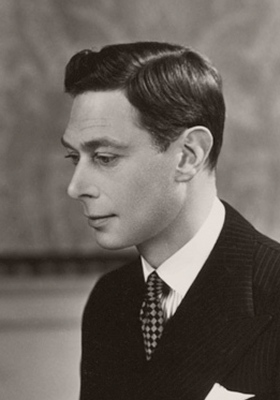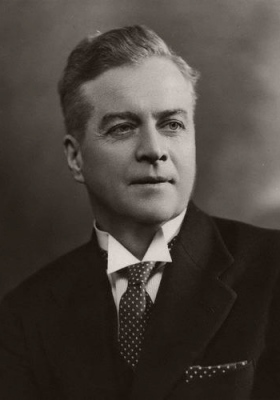The unsung star who helped a King find his voice
By Roya Nikkhah, Arts Correspondent
The Daily Telegraph, Oct 26th, 2010

A new film The King’s Speech portrays George VI being helped to overcome his stutter by speech therapist Lionel Logue.
But a key character is missing: actress Evelyn “Boo” Laye, who introduced the two men and sang with the future king to improve his fluency.
The film, which has been tipped for Oscar success, stars Colin Firth as the stammering monarch and Geoffrey Rush as the Australian Logue, who is depicted as the undisputed hero, saving the King from a lifetime of embarrassing long pauses.
But a new book of the same name, based on Logue’s previously unpublished personal diaries, suggests there is a crucial character missing from the film.
The King’s Speech, co–written by Logue’s grandson, Mark Logue, reveals the actress and singer Evelyn “Boo” Laye, as the unsung heroine who played a crucial role in helping the King, even singing with him to help overcome his stammer.
The book reveals how Laye, a famed beauty and one of the most celebrated stars of her day, became the King’s favourite actress after the then Duke of York first watched her perform as a 19–year–old in a 1920 West End production of The Shop Girl.
He and the Duchess of York, later Queen Elizabeth, the Queen Mother, later developed a friendship with Laye, and regularly attended her plays.

But in 1925, Laye experienced problems with her singing voice while appearing in the musical Betty in Mayfair at the Adelphi Theatre.
Forced to miss several performances when she lost her voice entirely, Laye visited Logue at his consulting rooms in Harley Street, where he recommended various deep breathing exercises, and her voice swiftly recovered.
The book recounts how Laye is thought to have met with the Duchess of York the following year, who confided in her that “Bertie”, as she called the Duke, was “extremely apprehensive” about their first major overseas tour of Australia and New Zealand in January 1927, because of the numerous speeches he would have to make.
Previous attempts by the Duke to speak in public had proved an ordeal because of the pronounced hesitation in his speech.
Laye suggested that the Duke and Duchess meet with Logue, and telephoned Patrick Hodgson, the Duke’s private secretary, to arrange the appointment.
The Duchess is said to have later told Laye that in a fit of nervousness, the Duke almost cancelled the first appointment, but that she had insisted he should keep it.
The book, which is published next month, will also reveal how Laye gave the Duke singing lessons to improve the fluency of his delivery.

With Logue’s encouragement, they regularly met at a West End rehearsal studio, where they sang his favourite Evelyn Laye songs together, including Love is A Song (But Two Must Sing It), When I Grow too Old to Dream and I’ll See You Again, from NoŽl Coward’s musical Bitter Sweet, in which Laye starred on Broadway in 1929.
Michael Thornton, a royal biographer and a close friend of Laye’s, said: “Boo was incredibly discreet until her dying day about her friendship with the King and Queen Mother, and never spoke publicly about the role she played in curing his speech problems.
“But she told me in a series of meetings we had before her death about her hand in the matter, and of how she used to sing with the King.
“It was also confirmed to me by Sir Martin Gilliat, the Private Secretary to the Queen Mother, who told me that she herself had confirmed it was Boo who arranged the introduction of Mr Logue to the Duke and Duchess of York.”
Mark Logue described Laye’s alleged involvement with his grandfather and George VI as “very interesting”.
Laye, who died in 1996 aged 95, was made a CBE in 1973. In 1994, Queen Elizabeth wrote to John Major, the then Prime Minister, suggesting Laye be made a Dame of the British Empire, an honour she never received.
Related Articles
The King’s Speech: George’s marvellous medicine
21 Oct 2010
The Kingís Speech
21 Oct 2010